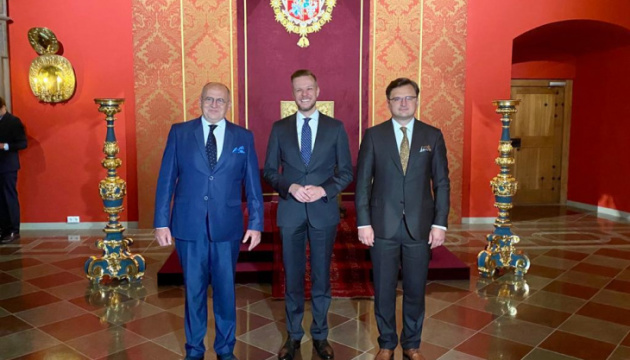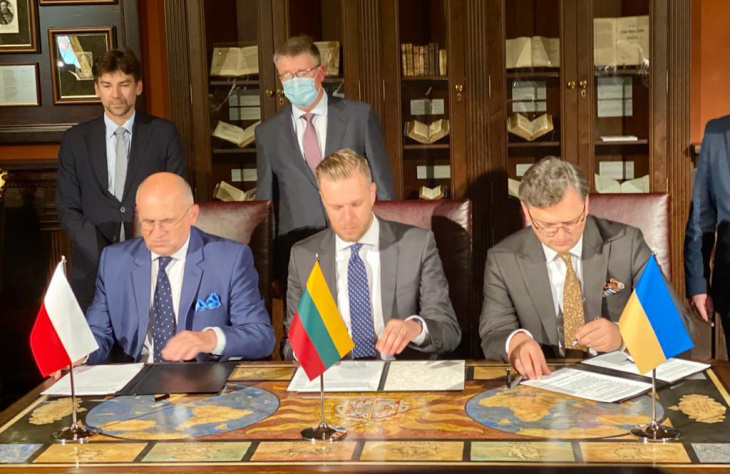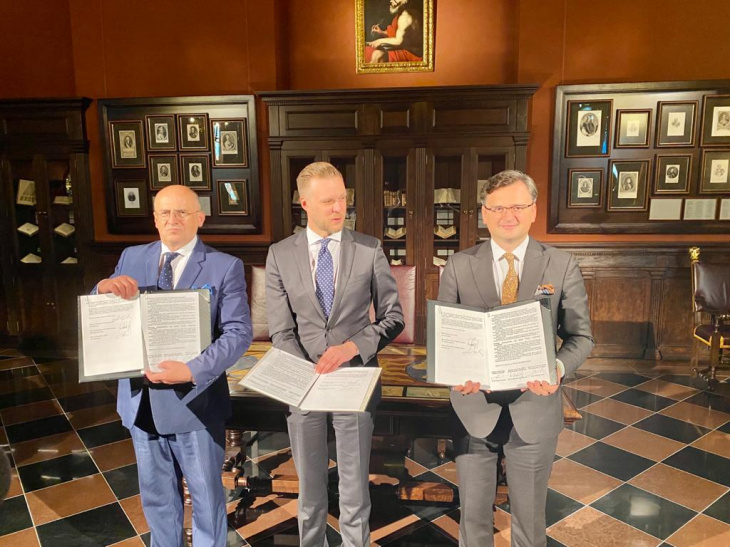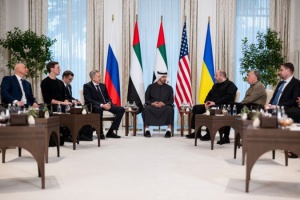
Lublin Triangle: Foreign ministers approve plan to counter Russian disinformation
According to the report, the foreign ministers held the third meeting of the Lublin Triangle in Vilnius on the sidelines of the 4th Ukraine Reform Conference.
"The ministers signed two new documents of the Lublin Triangle: the Roadmap for Further Cooperation and the Declaration on European Heritage and Common Values," the ministry said.

The foreign ministers also approved a joint action plan to combat disinformation.
The ministry said that the roadmap outlines the main areas of cooperation of the Lublin Triangle, including security, defense, energy, cyber threats, trade, culture and the fight against the COVID-19 pandemic. The document provides for the possibility of holding meetings of the Lublin Triangle at the level of heads of state and government. The parties will also cooperate within international organizations and in the development of cooperation with other partner countries.

The declaration on European heritage and common values recognizes the Constitution of Pylyp Orlyk as an integral part of the common cultural and legal heritage of Ukraine, Lithuania and Poland, which has largely shaped the European identity of Ukrainians, Lithuanians and Poles. The document also confirms Ukraine's European perspective, condemns Russian aggression, the temporary occupation of Ukrainian territories and Russia's destructive actions in the Black Sea. It also expresses support for the Crimean Platform and reaffirms the parties' intention to work closely together to ensure the de-occupation of the Crimean peninsula.
The detailed action plan to combat disinformation and propaganda provides for the preparation of regular reports and the development of a mechanism for a joint response to Russia's destabilization campaigns, exchange of experience and strengthening institutional capacity to counter hybrid threats.
"Today we signed and adopted important documents of the Lublin Triangle. They reflect our common European past, our common response to modern challenges and a common future for Ukraine in the EU and NATO, together with Poland and Lithuania. The Lublin Triangle is strengthening, being filled with practical mechanisms of interaction and gaining new importance. In fact, we offer an alternative to the 'Russian world' in our region," Kuleba said.
At the meeting of the Lublin Triangle, the Ukrainian, Lithuanian and Polish foreign ministers paid key attention to security challenges in the region: Russian aggression against Ukraine, the militarization of the Black Sea region, the situation in Belarus, and threats from the Nord Stream 2 project.
The ministers emphasized the importance of proactive deterrence policies to address common challenges in the region.
A separate topic of their conversation was Ukraine's further integration into NATO in accordance with the decisions of the 2008 Bucharest Summit and the 2021 Brussels Summit. Lithuania and Poland called for giving Ukraine a clear understanding of further steps towards membership in the North Atlantic Alliance.
Kuleba thanked his Lithuanian and Polish counterparts for their leadership in advancing Ukraine's NATO agenda.
The ministers exchanged views on the situation in Belarus and agreed that the Lublin Triangle would continue to support the Belarusian people in their just aspiration to live in a free democratic country where human rights are protected. Kuleba suggested involving Belarusian civil society in the activities of the Lublin Triangle.
The parties to the Lublin Triangle also discussed overcoming the effects of the COVID-19 pandemic and vaccinating the population. Ukraine, Lithuania and Poland agreed to intensify work with the European Union in order to adequately provide vaccines to the EU's neighboring countries through existing mechanisms.
Kuleba is on a working visit to Lithuania on July 6-9 as part of an official delegation led by Ukrainian President Volodymyr Zelensky to participate in the 4th Ukraine Reform Conference.
op




